Pakistan rejects Afghan, Indian allegations of "safe havens for terrorists" in UNSC meet
5 min readBy Iftikhar Ali
Pakistan strongly deplored allegations made on Friday by Afghan and Indian diplomats that terrorists use its territory as a safe haven, saying the country’s border with Afghanistan has been fenced and there is no free flow of people.
“We would never allow our soil to be used to destabilize Afghanistan and expect the same from Afghanistan,” Ambassador Munir Akram told a press conference hours after the UN Security Council discussed the situation in the war-torn country.
Afghanistan sought the 15-member body’s meeting as the Taliban continue to achieve territorial gains in the country.
Fighting between the Taliban and Afghan security forces has raged since April when U.S. and coalition forces began their withdrawal from the country. The withdrawal is set to be completed later this month.
At his press conference, Ambassador Akram also criticized India, the council president for the month of August, for denying Pakistan an opportunity to address the Security Council as a neighbouring country with a direct stake in peace in Afghanistan.
“We made a formal request for participation but it was denied,” he told reporters at UN Headquarters in New York. “Obviously, we do not expect fairness from the Indian presidency for Pakistan.”
Rejecting allegations about safe havens and sanctuaries as well as cross-borders movements of Taliban fighters as “mere fantasies”, the Pakistani envoy said, “Pakistan has eliminated terrorist groups from its soil. There are no safe havens in Pakistan.”
“Terrorism possesses a huge challenge to Afghanistan, to its neighbouring countries, particularly Pakistan,” Ambassador Akram said, while urging the international community to prevent the Afghan territory from being used by Al Qaeda, Da’esh and other international terrorist groups like Tehreek e Taliban Pakistan (TTP) and East Turkestan Islamic Movement (ETIM) to carry out attacks against any country.
“Pakistan is especially concerned at the support being provided to the Tehreek-e-Taliban Pakistan and the Jamat ul Ahrar (JuA) by a third country,” he said, adding, “So, the shoe is now is on the other foot.”
Ambassador Akram also slammed regional “spoilers” who he said were attempting to derail the Afghan peace process that Pakistan had facilitated.
He warned against spoilers, “both within and outside Afghanistan” against their machinations to promote their vested interests.
“Some are thus taking intransigent positions in negotiations. Some informally have become isolated from the realities and explain their plight by blaming others. Then there are spoilers outside who do not want a political settlement.”
The Pakistani envoy said that Prime Minister Imran Khan had consistently called for a political solution as the only way to restore durable peace and security in Afghanistan.
“Pakistan therefore welcomed the international consensus which has emerged that the best means of securing peace and stability is through a political solution negotiated between parties to the conflict,” he said.
Pakistan has made earnest efforts to promote such a political settlement, Ambassador Akram said, pointing out that in 2015, a political settlement was scuttled by the deliberate revelation of the demise of the then Taliban leader — Mullah Omar.
Pakistan, he said, was instrumental in bringing the Taliban to the negotiating table in 2019, and facilitated the conclusion of the US-Taliban agreement of February 2020.
“We helped to convene the intra-Afghan negotiations in Doha in September 2020,” he said while highlighting Pakistan’s role in the peace process.
Pakistan, he said, also joined the Troika — China, Russia and the US — to facilitate the intra-Afghan talks and the Doha process.
“It was a common presumption that the withdrawal of foreign forces would be accompanied by steps towards an intra-Afghan political settlement,” but the decision to divorce the two processes changed the parameters of the negotiating process and created disincentive for both Afghan parties to seek a compromise required for a political settlement.
“We strongly believe that any military takeover or imposition by force of a government in Afghanistan will further aggravate and prolong the conflict.”
Pakistan, therefore, calls on the Afghan parties to eschew a military solution; to protect innocent civilian lives including women; and children, and to engage in serious negotiations to realize a durable political settlement.
Ambassador Akram said Pakistan looks forward to the upcoming Troika meeting, to be held in Doha, Qatar, on Aug. 11 and expresses the hope that the meeting will contribute towards peace and stability in Afghanistan.
“We urge the parties involved to stay engaged in the Doha peace process.
“Ultimately, it is after all, for the Afghans themselves, to seize the moment to engage constructively and to work to secure a negotiated settlement.”
A continuation of the civil war, he said, would enable them to enforce their sponsorship of terrorism against Pakistan and other neighbours.
“They are feeding the conflict by advocating continued conflict in Afghanistan.”
“An inclusive political settlement will yield an integrated and connected region and will help usher in a new era of prosperity in Afghanistan as well as the broader region,” the Pakistani envoy said.
Pakistan and Afghanistan can serve as a bridge connecting central Asia and the Arabian Sea, he pointed out. There are a number of connectivity projects awaiting peace in Afghanistan. “We call on the international community to develop a time-bound and well-resourced plan for the dignified return of Afghan Refugees to their homeland and their reintegration in Afghanistan.”
Pakistan, he said, will continue to work for an inclusive Afghan settlement and have invited all Afghan leader to a conference in Islamabad to promote this objective.
“Pakistan still believes that peace is still within the grasp of the Afghan people,” ambassador Akram said, “They must not squander this opportunity.”
For the latest news, follow us on Twitter @Aaj_Urdu. We are also on Facebook, Instagram and YouTube.
















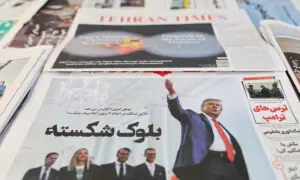
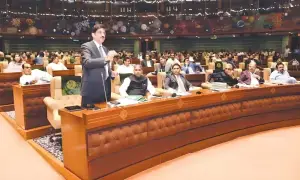

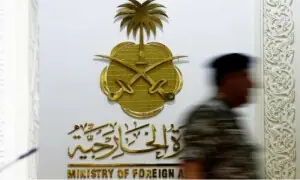
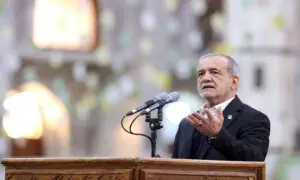

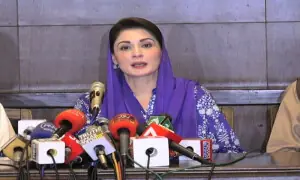

Comments are closed on this story.